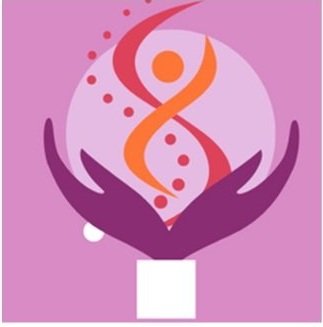
Welcome to the Midwifery Toolkit
Anti-racism workshop
On Wednesday, March 11th, 2020 the AOM hosted Anti-racism Workshop. Stacey Alderwick, who led it, guided participants through self-reflection, discussion, role play and small and large group exercises to support participants in building anti-racism and anti-oppression practice and skills to create equitable opportunities for BIPOC midwives/students.
BIPOC Mentorship Program
A program launched by Toronto Metropolitan University MEP for self-identified students who are Black, Indigenous, or People of Colour (BIPOC). This program, open to any midwife or student residing and working in Canada, is an opportunity for BIPOC midwives to pair, share and care with the next generation of BIPOC students.
5 tips to deal with workplace bullying
One article in Australian Nursing and Midwifery journal offers 5 tips for nurses and midwives to deal with workplace bullying, including getting help and support immediately, documenting the bullying, practicing self strategies to cope, knowing their rights and responsibilities and keeping perspective.
Established planned, structured, and gradual RTW process
Improve relations with hospital staff
Relations between between midwives and hospital staff are common sources of stress and challenge. Improving these relations may reduce harassment and bullying.
POPPY (Program for the prevention of PTSD) in midwives
This is a programme for the prevention of PTSD in midwifery which includes a package of educational and supportive resources comprising an educational workshop, information leaflet, peer support and access to trauma-focused clinical psychology intervention.
Identification of risk factors and reorganization of care
The key to early prevention of burnout is the identification of risk factors and the reorganization of care.
Consider introducing clinical supervision sessions
The organisational support (such as clinical supervision sessions) has been recommended as a way to combat each of the burnout components
Review MEPs to introduce focus on preventing burnout and improving MH
Ensure optimal working conditions for midwives
Optimise wellbeing through ensuring that midwives have access to appropriate working hours and regular breaks
Review the staffing of midwives within organization
Organisations should review their maternity staffing levels using a recognised workforce planning tool, such as Birthrate Plus, to make sure they have the appropriate midwifery establishment for their workload. (p.5)
Professional supervision should be seen as a competence
Professional supervision should be viewed as a competency requirement and be incorporated into the midwifery recertification programme.
Creating centralized EMR for midwives to use for shared care
A centralized patient database could reduce administrative burden and facilitate shared care.
Teaching Compassionate Mind Training (CMT) to help midwives deal with stressful events
An intervention that supervisors, managers and midwifery lecturers can implement to help a midwife to recover from experiencing a distressing incident in clinical practice. (p.15)
Simulation-based training program to reduce stress
A mandatory simulation-based program demonstrated a positive impact at individual and organizational levels.
Guideline on Managing Personal & Practice Health
This document by College of Midwives of Ontario provides information on supports and resources for midwives who are experiencing mental health and addiction issues.
Providing support and training on resilience for MP students and mentors
In Investigating Resilience in Midwifery report, it is argued that it is important to provide reflective sessions focused on building resilence in MEPs/orientation sessions for MEP as well as mentorship on resilience and self-development in midwifery supervision
A training workshop on stress
A short-term training workshop of stress management delivered in one hospital in Iran that proved to be effective in diminishing level of occupational stress.
Offering mindfulness stress reduction course
A mindfulness practice holds promise for increasing individual and workplace resilience.
Supporting midwife-to-midwife relationship and ensuring respect
Based on the results of their study, Darling et al. conclude that supporting healthy midwife-to-midwife relationships and improving respect for and understanding of midwifery are areas that call for novel interventions and multi-pronged approaches.
Creating a Circle of Support
A solo midwife should begin by creating a circle of support (at least two other midwives) around her) in order to best handle the bullying.
Team charter
Midwifery practices should create “team charter” for establishing the vision and promote positive intraprofessional dynamic
Investing in leadership training
Investment in high quality training for midwifery managers and leaders is critical to ensure that clinical midwives feel authentically heard, valued and supported. (p.34)
Collegue Support and team work
Workplaces must ensure that there is colleague support and effective teamwork as they positively impact workplace health.
Recognise and Reflect
A short work-focused discussion group held at the end of each day shift and led by a specialist registrar and senior labour ward midwives at Cork University Maternity Hospital (Ireland). These sessions provided participants with an opportunity to support colleaguues and debrief after a stressful day.































